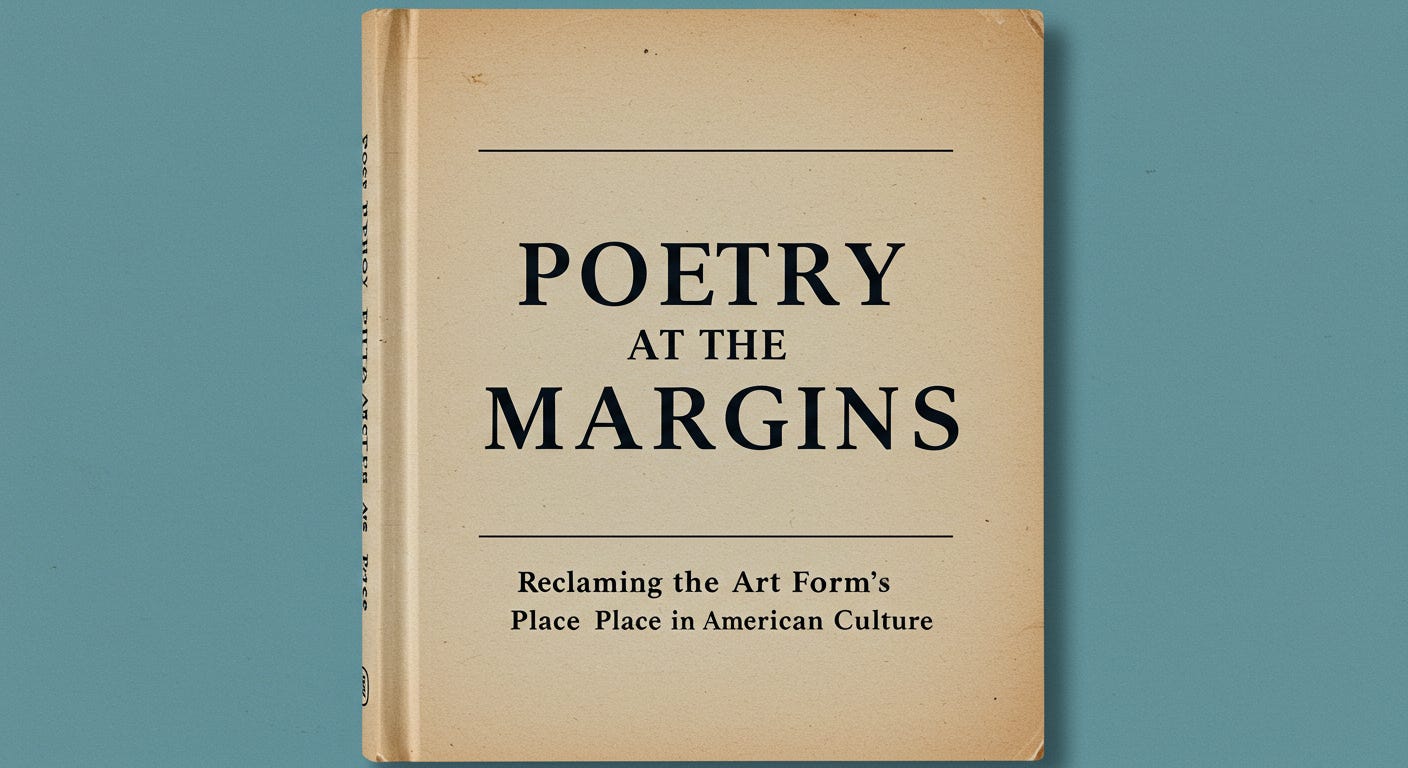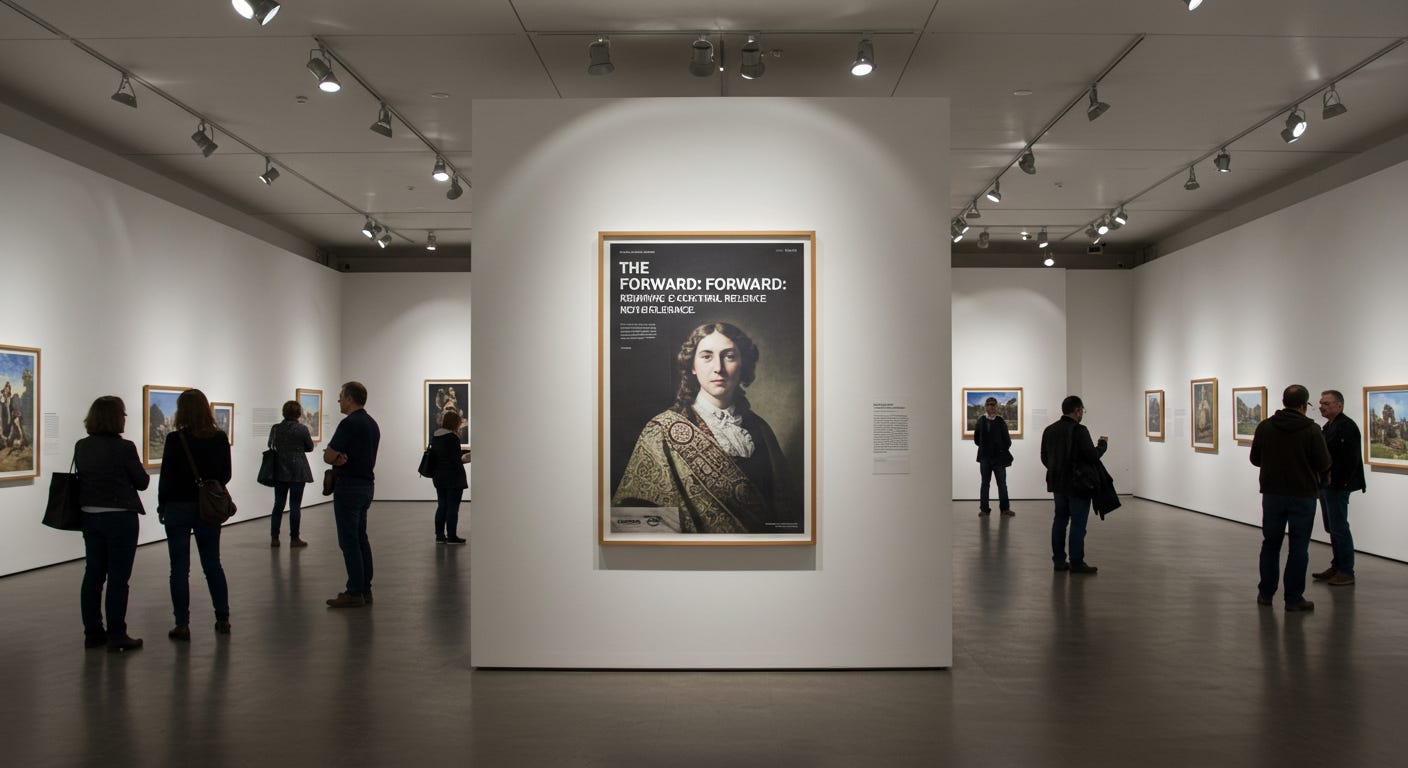Editor’s Note:
Hello and Happy May to you! May you have a most poetic month. I can still use some help with Poetix, especially when it comes to the various readings coming up in the Tampa Bay area. I just put together an essay on the state of poetry. For the past 30 years or so I have been involved in local poetry scenes, whether here in Tampa Bay or Los Angeles. I’ve run readings, edited anthologies, done workshops and of course attended as many readings as I can. For whatever reason, I decided to write and essay. I don’t know what possesses me sometimes. It is titled Poetry at the Margins: Reclaiming the Art Form's Place in American Culture. I hope you enjoy reading it.
This month’s Coffee & Poetry at Jack’s House will feature a most riveting poet Emily Schulten on May 25, from 3 to 6. Tickets!
A poem a day keeps the idiocy away!
Lv,
Larry
Welcome to Coffee & Poetry at Jack's House
Featuring Emily Schulten May 25, 3 to 6.
Join us for an intimate afternoon of poetry at the Kerouac House. The most wondrous Emily Schulten will be sharing her delectable work with us. Sip on delicious coffee and pastrries from Chef Shelley, as you immerse yourself in the world of poetry. Emily is truly a poetic treat. There will be a $10 Cover Charge featuring baked goods from Chef Shelley. Get your tickets here!
A little about Emily
Emily Schulten is the author of three poetry collections, including Easy Victims to the Charitable Deceptions of Nostalgia, the 2023 White Pine Press Poetry Prize winner, and The Way a Wound Becomes a Scar, a 2023 Eric Hoffer Award Finalist, and. The recipient of a 2024 Academy of American Poets Laureate Fellowship, her poetry and nonfiction appear in Ploughshares, The Kenyon Review, Tin House, and Prairie Schooner, among others. Schulten is the current Poet Laureate of the City of Key West, where she serves as a professor and the director of CFK Poetics at The College of the Florida Keys. Get your tickets here!
Poetry at the Margins: Reclaiming the Art Form's Place in American Culture
Poetry in America has become a quiet art form, existing in the cultural shadows while music, film, and visual arts command the spotlight. Once the heartbeat of social movements and the voice of generations, poetry now struggles for relevance in a society that has pushed it to the periphery. This marginalization isn't imaginary – it's a cultural reality that demands our attention.
The evidence surrounds us. Major newspapers that once gave poetry prominent space now rarely mention it except in obituaries. Television networks that featured poets like Robert Frost (who appeared regularly on TV in the 1950s and 60s, most famously at Kennedy's inauguration in 1961) now showcase poetry primarily at rare ceremonial moments. Yes, Amanda Gorman captivated the nation at Biden's inauguration in 2021 and even read at the Super Bowl in 2022, but these exceptions highlight how unusual poetry in mainstream media has become. Publishers, facing brutal market realities, invest minimally in poetry collections – the average poetry book sells fewer than 500 copies, while novels routinely reach tens of thousands. Even prestigious literary journals struggle to maintain readership, their circulation numbers dwindling year by year.
Our education system has systematically devalued poetry. Where students once memorized and recited verses, developing both appreciation and analytical skills, poetry now appears as brief units squeezed between "more practical" subjects. Many schools have eliminated poetry from curricula entirely, viewing it as expendable in an era focused on STEM and standardized testing. Libraries, reflecting this cultural shift, often relegate poetry to forgotten corners, their shelves gathering dust while bestseller displays dominate entrance areas.
The digital revolution has compounded poetry's challenges. Our attention spans, fragmented by social media and instant notifications, seem increasingly incompatible with poetry's contemplative nature. The algorithms that drive online content favor quick consumption over deep reflection. While some poets have found success on platforms like Instagram, these often prioritize brevity and visual appeal over the complex language and layered meaning that characterize much of poetry's heritage.
The economics of poetry tell a brutal story. Professional poets survive primarily through academic positions or other employment, rarely from their art itself. Poetry readings, once cultural events that filled auditoriums, now struggle to draw audiences beyond fellow poets. Funding for poetry programs has been slashed at federal, state, and local levels. The National Endowment for the Arts, which once robustly supported poetry initiatives, faces constant budget threats and has had to reduce its poetry programming significantly.
Yet elsewhere in the world – in Latin America, parts of Europe, and the Middle East – poetry maintains its cultural vitality. In countries like Chile and Argentina, poets are respected public intellectuals whose opinions shape national discourse. Poetry events in cities like Paris and Berlin draw crowds of thousands. Middle Eastern countries maintain rich traditions of public poetry recitation. The contrast highlights that America's poetry problem isn't about the art form itself, but about how we've chosen to value it.
This decline represents more than just changing tastes – it signals a deeper cultural loss. Poetry has historically served as society's conscience, its memory, its voice of resistance and hope. From Walt Whitman's celebration of democracy to Langston Hughes's articulation of African American experience, from the Beat generation's rebellion to contemporary voices addressing climate change and social justice, poetry has been essential to American cultural evolution. Its marginalization leaves us with fewer tools to process complex emotions, to challenge power structures, to imagine alternative futures.
There are, however, signs of adaptation. The pandemic prompted a surge in online poetry readings via Zoom and other platforms, creating virtual communities that transcend geographical boundaries. Poetry slams and spoken word events have built dedicated followings, particularly among younger audiences. Some poets have successfully leveraged social media, finding new ways to connect with readers. Yet these innovations, while valuable, haven't reversed poetry's overall decline in cultural prominence.
The Path Forward: Reviving Poetry's Cultural Relevance
The solution lies not in changing poetry, but in changing how we present and integrate it into contemporary life:
1. Community Integration
We need poetry in public spaces – on buses, in cafes, projected on buildings. The "World Needs More Poetry Project" model of direct distribution to strangers should be expanded nationwide.
2. Educational Revolution
Poetry must be taught as a living art, not a dead language. Schools should host resident poets, hold regular readings, and teach poetry as both creation and appreciation.
3. Media Presence
Poetry needs advocates in mainstream media who will cover it not as a curiosity but as vital cultural expression. Poetry should be part of arts coverage, not segregated to occasional special features.
4. Economic Innovation
We need new models for poetry's economic viability – perhaps through patronage systems, community-supported poetry initiatives, or integration with other art forms.
5. Digital Adaptation
While maintaining poetry's essence, we must find ways to engage digital natives – through innovative apps, multimedia poetry experiences, and social media campaigns that respect the art form.
6. Cross-Art Pollination
Partner poetry with music, visual arts, and performance to reach broader audiences without compromising its integrity.
Poetry's power hasn't diminished – only its platform has shrunk. By reimagining how poetry lives in our society, we can restore its rightful place as a vital force in American culture. The challenge isn't to make poetry something it's not, but to help people rediscover what poetry has always been: the most direct path from one human heart to another.
The revolution begins with recognition. Poetry isn't dying – it's waiting for us to remember why it matters.









This is a well thought out battle cry and something to rally around.
Larry,
I agree that Interest in poetry has withered. I am grateful to you for digging into both the problem and the possible solutions. I once researched how to initiate a Poet Laureate program in Tarpon Springs. I'll look for my notes.
Thank you
Suzanne